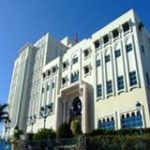Yemen is a republic with a constitution that provides for a president, parliament, and an independent judiciary. In 2006 citizens elected President Ali Abdullah Saleh to another seven-year term in a generally open and competitive election, but one characterized by multiple problems with the voting process and the use of state resources on behalf of the ruling party. Ali Abdullah Saleh led North Yemen from 1978 until its unification with South Yemen in 1990 and the unified Yemeni state through 2011. Saleh agreed to transfer power in November, marking the first change in Yemen’s leadership structure in more than 33 years and setting in motion a two-year transition period. Although the constitution provides for a separation of powers, until the transition agreement, Saleh, his family, and close allies maintained nearly exclusive control of the state apparatus. There were significant instances in which elements of the security forces acted independently of civilian control. Following the defection of a key military commander in March, major components of the armed forces were not under government control. Those remaining under de jure government authority were for the most part under the direct control of the Saleh family, rather than formal national authorities.
Large-scale demonstrations began on January 23 calling for the removal of the Saleh family from power. The subsequent defection of military units, an internal armed conflict between government and opposition forces beginning in May, and President Saleh’s refusal to implement an internationally brokered transition agreement until November 23 led to a prolonged period of upheaval that triggered a severe economic decline, increased insecurity around the country, and a humanitarian crisis. National institutions were ineffective or nonexistent, and the independence of the judiciary was undermined. Parliamentary sessions were not held between April and December, restarting only after the signing of the transition agreement in late November. With tensions continuing at year’s end, although at a decreased intensity after the start of the transition process, the political stalemate and armed conflict between elites generally resulted in a degraded human rights environment.
The most important human rights problems were government military and security forces’ violent reactions to citizens’ efforts to peacefully change their government, and the inability of citizens to exercise the full range of their basic human rights.
Other major human rights problems included: torture and other cruel, inhuman, or degrading treatment or punishment; arbitrary arrest and detention; denial of fair public trials; lack of judicial independence; limits on freedoms of speech, press, and assembly; extremist threats and violence; restrictions on freedom of movement; lack of transparency and significant corruption at all levels of government; use of child soldiers by organized forces and tribal and other informal militias; and restrictions on worker rights.
Impunity was persistent and pervasive. The government did not undertake credible investigations or prosecutions of officials for human rights abuses. Government officials implicated in serious human rights violations remained in their positions at the end of the year.
Nongovernmental actors engaged in internal armed conflict with government forces and proxies and committed abuses related to traditional tribal conflicts or simple criminality. Multiple armed groups, including opposition and progovernment tribal militias, regionally and religiously oriented insurgents, terrorist groups including Al-Qaida in the Arabian Peninsula (AQAP), military units that had defected, and government-sponsored “thugs,” perpetrated numerous human rights abuses. Principal among these were arbitrary killings, unlawful detentions, and use of excessive force, often in heavily populated urban areas, where combatants employed artillery, rockets, and sometimes tanks, which resulted in the deaths of hundreds of persons.





